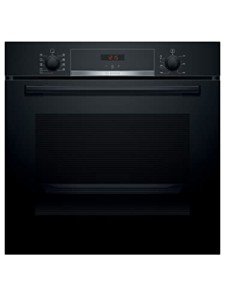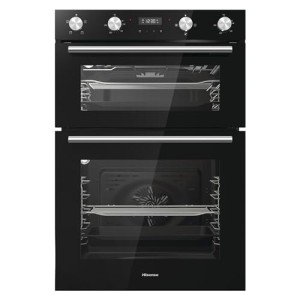10 Healthy Integrated Cooker And Hob Habits

본문

The Rise of Integrated Cookers and Hobs: A Comprehensive Guide
In the modern-day kitchen, performance, style, and area optimization are essential factors to consider for property owners and striving chefs alike. Among the most considerable trends in kitchen style is the increasing popularity of integrated electric ovens cookers and hobs. These appliances not just enhance the cooking experience however also elevate the visual appeals of the kitchen area. This short article checks out the attributes, advantages, functions, and considerations surrounding integrated ovens and hobs cookers and hobs, supplying readers with an in-depth understanding of their benefits.
What Are Integrated Cookers and Hobs?
Integrated cookers and hobs refer to cooking appliances that are built into the kitchen cabinetry, providing a smooth appearance and optimizing making use of area. Integrated appliances are designed to blend with the aesthetic of the kitchen rather than standing out like traditional designs.
Kinds Of Integrated Cookers and Hobs
Generally, integrated cooking appliances include:
- Integrated Hobs: These are cooktops that fit flush into the kitchen counter top. They can be gas, electric, induction, or a mix of these technologies.
- Integrated inbuilt ovens: Built straight into the cabinets, integrated ovens can come as single, double, or multifunctional designs, offering diverse cooking capabilities.
- Combination Units: Some models combine an oven and hob into a single home appliance, providing a compact solution for smaller sized kitchen areas.
Advantages of Integrated Cookers and Hobs
1. Area Optimization
Integrated cookers and Integrated ovens hobs are ideal for Ovens Integrated small kitchen locations. By embedding the cooking appliances into kitchen cabinetry, property owners can utilize their kitchen area more effectively, leaving more room for meal preparation and movement.
2. Visual Appeal
These appliances provide a streamlined and modern seek to the kitchen. The capability to choose finishes and incorporate them into the surrounding cabinetry produces a unified style that boosts the general appearance of the kitchen.
3. Improved Functionality
Integrated cookers and hobs typically feature innovative innovation features, such as smart controls, timers, and cooking presets, enhancing user experience and enabling effective cooking.
4. Boosted Safety
Lots of integrated hobs feature precaution such as child locks and automatic shut-off functions. This makes them safer than traditional freestanding designs, especially in households with children.
5. Increased Resale Value
Modern homes with integrated ovens and hobs appliances frequently attract higher resale values. Potential purchasers try to find smooth designs and modern benefits, making integrated cooks and hobs a wise investment.
Features to Consider When Choosing Integrated Cookers and Hobs
When choosing integrated cookers and hobs, numerous functions must be taken into account:
1. Cooking Technology
- Induction: Provides fast and efficient cooking, simple to tidy, and offers accurate temperature level control.
- Gas: Offers traditional cooking benefits with immediate heat however requires sufficient ventilation.
- Electric: Provides consistent heat and is available in various styles.
2. Size and Configuration
- Oven Capacity: Should suffice for the home's cooking requirements.
- Hob Size: Depending on the variety of burners/vessels required for simultaneous cooking.
3. Control Mechanisms
- Touch Controls: Provide a streamlined appearance and ease of cleaning.
- Knob Controls: Offer tactile feedback and are user-friendly.
4. Finish and Style
Integrated cookers and hobs come in different surfaces, consisting of stainless-steel, black glass, and even customizable alternatives to match kitchen cabinetry.
5. Energy Efficiency
Go with energy-efficient models that can save money on energy costs and lower ecological effect.
Maintenance and Care
To maintain the efficiency and longevity of integrated cookers and hobs, routine maintenance is essential:
- Clean the surface areas: Regularly clean down the hob and oven surface areas to prevent residue accumulation.
- Examine seals and gaskets: Ensure that oven seals are undamaged for effective cooking.
- Service routinely: Schedule professional upkeep to keep the appliances in top shape.
FAQs
1. What is the difference between built-in and integrated cookers?
Answer: Built-in cookers are designed to be installed within kitchen cabinetry, whereas integrated cookers are developed to perfectly blend with the cabinetry for a more cohesive appearance.
2. Are integrated appliances more expensive?
Answer: Generally, integrated appliances might have a greater upfront cost compared to freestanding units due to the fact that of their style and the installation requirements. Nevertheless, they can offer long-lasting savings in energy effectiveness.
3. Can I set up integrated cookers and hobs myself?
Answer: While some property owners may be able to manage the installation themselves, employing a professional is advised to make sure proper fit and function, especially for gas appliances.
4. Are integrated cookers and hobs simpler to clean up?
Response: Integrated hobs usually have less crevices, making them much easier to clean up. Nevertheless, the particular cleansing requirements will depend upon the products utilized in the appliance.

5. What should I check before purchasing?
Answer: Check the size of your kitchen space, cooking requirements, energy performance scores, and compatibility with existing kitchen cabinetry.
Integrated cookers and hobs are becoming significantly favored in modern kitchen areas, integrating performance with visual appeal. By understanding their advantages, functions, and upkeep needs, house owners can make educated choices when selecting the best appliances for their cooking spaces. As trends in kitchen design continue to progress, integrated cooking options will likely remain at the leading edge of home development, promising both practicality and style.







댓글목록0
댓글 포인트 안내